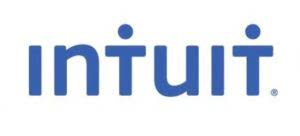Advantages & Disadvantages of Shares Being Issued

Although common stock is the most flexible type of investment offered by a company, it gives shareholders more control than some business owners may feel comfortable with. That allows a company to issue preferred stock without upsetting controlling balances in the corporate structure. Common stock provides a degree of voting rights to shareholders, allowing them an opportunity to impact crucial managerial decisions. Companies that want to limit the control they give to stockholders while still offering equity positions in their businesses may, therefore, turn to preferred stock. Although the lack of voting rights with preferred stock is a disadvantage for Food Truck Accounting investors, it is an advantage for the business. This structure means that the Equity percentage doesn’t go through a dilution process when selling preferred shares as they do with the ordinary ones.
Investor Confidence
Companies also benefit from flexibility in the significant variety of bonds that they can offer. A quick look at some of the variations highlights this flexibility. That means future earnings must be shared among a larger pool of investors. More shares can cause a decrease in earnings per share (EPS), putting less money in owners’ pockets. EPS is also one of the metrics that investors look at when evaluating a firm’s health. A declining EPS number is generally viewed as an unfavorable development.

Why Would a Company Issue Preferred Shares Instead of Common Shares?
- When you purchase preferred shares, the liquidation value of the asset is known immediately.
- There are many advantages to doing so, but also some drawbacks that are worth remembering.
- The issuance of stock is one of the key stages in the development of many organizations, as it forms the basis both of their financing and of their business strategies.
- These bonds give investors the right to claim a company’s underlying assets if the company defaults.
- Unless there is a specific dividend stock or investing strategy to implement, beginners typically approach the stock market through guesswork.
- They are both electronic exchanges, meaning that trades are made through a computerized system.
If you get excited about the idea of putting your money to work in a high-growth company, then you shouldn’t expect the benefit of dividends when you own preferred stock. Organizations that focus on growing as the first priority put their excess cash back into the business instead of paying dividends. That’s why most preferred stock owners choose to work with mature agencies that have less need for cash to fund growth. Those are the companies that reward their investors with the most dividends.

List of the Disadvantages of Common Stocks
- Issuing shares, also known as equity financing or raising capital through equity, is a common method for companies to raise money to fund their operations, growth, and expansion.
- Shareholders who use this investment vehicle are not obligated to receive a portion of the profits that a business earns.
- Additionally, disclosure requirements guarantee that shareholders have access to relevant information, and voting power allows them to have a say in company decisions.
- Diluting ownership over your company may also reduce the control you have over it as a whole.
- Because this lowers the overall risk of lending money to you, it may become possible to secure a lower interest rate when buying a new car or another significant item.
- Common stock provides a degree of voting rights to shareholders, allowing them an opportunity to impact crucial managerial decisions.
Issuing common stock also allows business to bring other qualified businesspeople into the mix. Because investors own part of the company, they have a vested interest in its success and will likely offer services and resources to help. Shareholder scrutiny is heightened when voting power is exercised, as it allows shareholders to hold the company’s management and board accountable for their actions. By casting votes on important matters, shareholders can voice their opinions and preferences CARES Act regarding the strategic direction and governance of the company.
- Issuing stock is a great way to attract investors, as opposed to funding your company with debt, which could turn investors away.
- In this blog post, we will explore some of the main benefits that companies can enjoy by issuing shares to raise capital.
- Online traders make it simple and inexpensive to trade common stocks from major exchanges around the world.
- When a company goes public, there are a variety of pricing considerations that go into setting the price of the stock.
- Corporations can issue different classes of stock that provide different rights to buyers, including the right to receive dividends and to vote about the management of the company.
- Lenders understand that they can use the stock as a way to pay off a future debt if you run into financial trouble.

A company can take out a loan however often they see fit, as long as they are willing and able to pay the money back. It is also wise to put no more what is an advantage to a corporation issuing stock? than 20% of your fixed-income portfolio into these instruments to ensure that the best possible outcome can develop. This wide selection also means that investors should do their homework. They need to make sure they understand where they are putting their money. They should also know how much they will earn and when they can expect to get their money back. Calling a bond is similar to a mortgage borrower refinancing at a lower rate.

